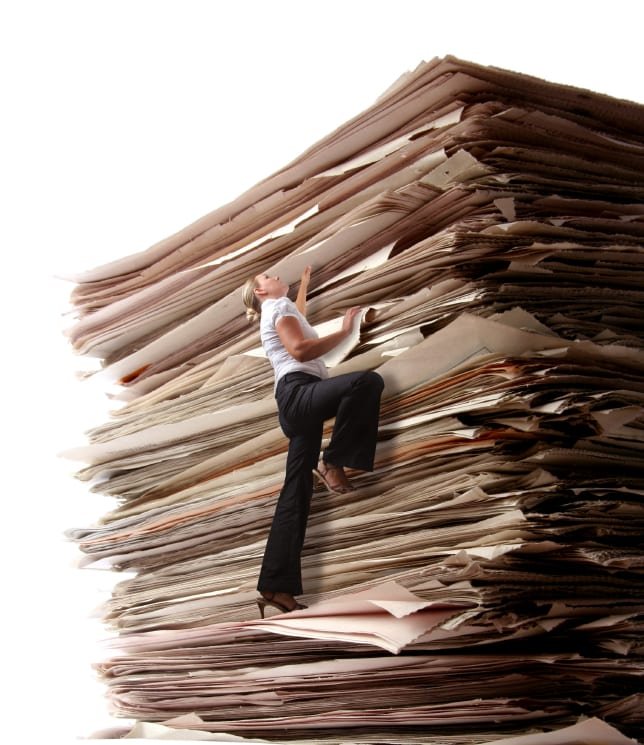How To Organize Your Papers
Time Management

For many, the idea of sitting down to pay bills or organize your papers can feel like an exhausting and overwhelming prospect – draining your energy before you even begin.
This can feed the procrastination that allows the project to snowball in your mind and hang over your head until you inevitably have to deal with it.
I can’t make the administrative side of life disappear but I can provide you with a few time-tested strategies to organize your papers, mail, and bills from a dreaded project to a simple routine that doesn’t even register on your anxiety meter.
As always, remember that we are aiming for ‘good enough’ instead of perfection. Give yourself permission to incorporate only the tips that feel good to you over time and customize them for your life and work-style.
How to Organize Your Papers
Pick up and process your mail regularly: Eliminate anxiety by setting a target for how often you want to get your mail and a separate goal for how often you want to want to review and process it. Make sure these targets feel realistic and stress-free for your life.
Eliminate junk mail: Protect your home from junk by keeping a trash bin/shredder near your front door. Don’t let any junk mail sneak past! You can also take a minute to save some trees and remove your address from junk mail lists, credit card offers, and catalogs.
Get a mail basket: Not everyone wants to open and review mail right away. After the junk mail is pitched, place the remaining pile of unopened mail in a designated basket or container until you are ready to review it.
Keep action papers separate from filing: There is a very big difference in our brains between papers that we need to complete a task or action and papers that only need to be filed. For whatever reason when we mix these types of paper it messes with our brain. It makes the whole pile of paper so much more overwhelming to deal with. Keep these types of paper separate to greatly reduce your stress and anxiety around paper.
Give receipts a home: If there is any one item that seems to mass produce itself while we’re asleep it’s paper receipts. Give them a home – label an open bin, clear envelope, drawer, or your favorite expandable file (if they need to be organized by date) – and make sure it is stored in an easy to drop-in location.
Go paperless: Sign up for e-mail statements, balance alerts, reminders etc. and never have to file another bank statement or utility bill again.
Set up automatic bill pay: There are many ways to accomplish this now. Pick what feels best to you. The peace of mind this process generates far outweighs the minimal time investment it takes to get it set up.
Schedule a meeting with yourself: Designate a certain time of day/week/month when you review your mail, process your action folder, pay random bills, etc. Keep up with this routine and you’ll never have to dread a backlogged admin project again!
The key is to experiment with the paper organizing tips that resonate most with you. Over time you will see what works and what doesn’t. When you run into something that doesn’t work – tweak! This is how you customize a system that works for you and your world.
Are You Ready To Upgrade Your Time Management and Task Systems?
If you are ready to put ALL the pieces together of your time and task management system I encourage you to check out my digital workbook on Amazon.com called True For You Time Management. It walks you through the process of building a time and task system that really and truly works for you. Check it out.
If you’d prefer to have immediate feedback as you build your system click below to learn about my productivity coaching programs.
Latest Blog posts
![[Free Meditation] The Dangers Of Self-Improvement](/media/images/Free_Meditation_The_Da.2e16d0ba.format-jpeg.fill-590x300.jpg)
[Free Meditation] The Dangers Of Self-Improvement
How you get into the water is less important than actually being in the water.

Resources For Women With ADHD
I recently sat down with Linda Roggli, PCC, for a quick and informative interview.

10 Hard To Believe (But True) Productivity Statistics
Here are some of my favorite hard to believe productivity statistics that help point out what science has known longer than our society